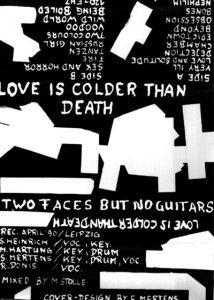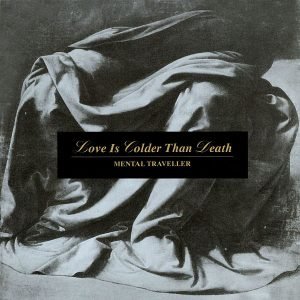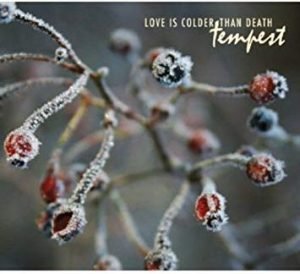Photo Credit: Ravenlessness Tian
Few bands are so difficult to label as German act Love Is Colder Than Death, whose career in perpetual metamorphosis has avoided an easy classification. We talked with Maik Hartung a few days before the band’s concert at the DarkMad festival that is taking place on the 26th of October in Madrid.
—The name of the band comes from a Fassbinder movie, right? I am a big fan of this German director, what do you find interesting in his movies? Is this film from 1969 your favorite?
—The band name does not refer to the Fassbinder movie of the same name, but to the B-side of Erasure’s A Little Respect single titled “Love Is Colder Than Death”. Of course, we appreciate the importance of Fassbinder’s complete oeuvre very much, especially the movie “World on a Wire”, and yet our film preferences go into another direction.
—The band’s first reference was a cassette you sent to the record companies. Things have changed a lot in the relations between companies and bands nowadays, don’t you think?
—At that time, we did not send tapes to record labels anymore. The deal with our then record company came about when they saw us for the first time in one of our live concerts. Of course, the relationship band/label is a completely different one today. Most of the bands do not live on record sales anymore, but on touring.
 —The same material of the cassette appeared as Two Faces but No Guitar, also from 1990. The band did not release a lot of copies, right?
—The same material of the cassette appeared as Two Faces but No Guitar, also from 1990. The band did not release a lot of copies, right?
—There were only 20 tapes published. In a very long session, we recorded 18 songs in a Leipzig underground studio and then published 20 copies. Only a few of the pieces can be heard on Teignmouth.
—Teignmouth, the band’s first album has the “heavenly voice” of Susann Heinrich and the darker songs of Ralf Donis. Was this the concept behind the band?
—The concept changed when Ralf Donis joined the band with his rather strong EBM influence. So there were now two sound facets in the band, which we tried to intertwine with each other.
—It was also the first album published by Metropolis records. Why did you stop working with them?
—That changed abruptly as we left Hyperion. Metropolis was only receptive to albums based on EBM & Electro. Atopos and all the following albums were secondary for that record label.
—Mental Traveller from 1991, continues with the concept of the first album but this time, the industrial songs are even harder. Were you interested in this style or was it only work of Ralf Donis?
—The songs on Mental Traveller are actually not as EBM-straight as on the first album. The tracks with Ralf Donis on Mental Traveller are mainly inspired by Clock DVA, which at that time was an important influence for us.
—When critics talk about your band, they always talk about medieval influences. But did you listen or were interested in music from those centuries?
—We have never been particularly interested in medieval music. That was the easy thing to say, and maybe also because of how various 4AD acts dealt with this music.
—Were you interested in Dream Pop when this album was released?
—Dream Pop is a broad term. I can say that we really liked and still like the British shoegaze sound of Creation bands like Slowdive. I would call that Dream Pop.
—And what do you think of New Age? Have you ever been interested in this genre?
—I’m not a New Age fan. Besides pop, I hear a lot of classic and modern classics, like John Adams, Simeon Ten Holt, Henryk Górecki, etc.
—What happened with Susann and Andy Potter that they left after 1995? I read they wanted a more pop-oriented sound.
—Andy is back in the UK and Susann sang one last time on the Eclipse album. Meanwhile, she goes to other non-musical ways.
—Is the EP Spellbound the last one with this formation?
—Spellbound was created by Susann, Andy and Maik.
—Eclipse, your album from 2003, has songs with names like “Song of Faith” and “Holy Thursday”. Is the band following any religion or do you consider the lyrics religious? Who’s in charge of the lyrics?
—Our texts are by no means religious. Moreover, religion has never played a role in our lives. The lyrics “Song of Faith” is written by Sven Mertens. “Holy Thursday” is by William Blake.
—What happened that the band split up in 2011?
—There were certain problems within the band, which could not be fixed.
 —Tempest, from 2013, is the last album of Love Is Colder Than Death. How do you see the evolution of the band in these years?
—Tempest, from 2013, is the last album of Love Is Colder Than Death. How do you see the evolution of the band in these years?
—Tempest is the logical conclusion of a musical phase, starting with Atopos via Eclipse to Tempest.
—The band has put music to poems by Emily Brontë, John Keats, and William Blake, among others. What other writers do you like?
—Recently I read a book about the vigesimal number system of the Mayan culture. I’m not usually focus on specific authors, but I’m actually reading more scientific literature.
—Any new album in the making?
—A new release is planned. We are currently working on new songs. Maybe we start with the beautiful, classic EP format. In any case, it will be released on vinyl.
—Who are the current members of the band?
—Maik Hartung and Ralf Donis.
—Do you like bands like The Breath of Life or Collection D’Arnell-Andréa?
—I do not know either of them.
—How is going to be your concert at DarkMad?
—We are looking forward to playing in Madrid, the whole line-up is very interesting. In any case, we are very curious to see how the new songs will be received Madrid. But of course, we will also play the well-known songs of Teignmouth and Mental Traveller.



